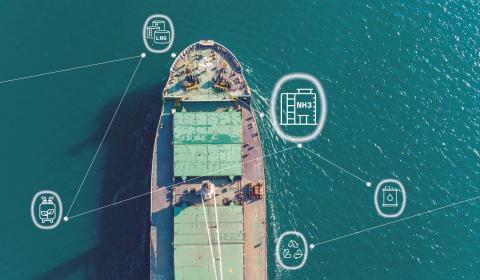
Preparations for ES-TRIN 2023 underway
The updated version of ES-TRIN 2023, which is set to enter into force in January 2024, contains revised requirements for inland passenger vessels and low-flashpoint fuels. The new version will also bring amended standards for waste-water, engine and firefighting equipment installation.
New technical requirements
The draft proposal covers a range of topics, including new standards for after-treatment systems, life jackets, electric propulsion engine positioning, retractable wheelhouses and radar installation.
Two major areas that will be revised are the special provisions relating to passenger vessels, and those applying to craft equipped with propulsion or auxiliary systems driven by low flashpoint fuels.
Revised passenger vessel instructions
Revisions tabled by the temporary working group CESNI/PT/Pax for passenger vessels (Chapter 19) have already been approved and will be included in the final ES-TRIN 2023. The purpose was to examine the difficulties encountered in implementing some provisions of the Chapter, rather than to make any substantive changes.
Administrative instructions and individual requirements were amended in several areas, including alternative tables for partition requirements, the safety rota, staircases, evacuation areas and the use of materials other than steel.
Fuel amendments
Technical provisions for propulsion or auxiliary systems operated with low-flashpoint fuels have also been restructured and updated. These fuels are defined as having a flashpoint equal to or lower than 55° C.
Following discussion, requirements for the storage and use of LNG have been adopted (Annex 8, Section II, Chapter 1 and Section III, Chapter 2). New requirements for fuel cells have also been validated (Annex 8, Section III, Chapter 1).
Several remaining issues are still under discussion and are expected to be included in the following ES-TRIN 2025. These include storage of methanol and hydrogen as contained in Annex 8, Section II, Chapters 2 and 3, the storage and use of CNG, and the treatment of methanol in combustion engines.
Clean and safe operation
The constant refining of ES-TRIN is key to the safe and clean operation of inland waterway activities in Europe and Bureau Veritas is committed to playing an active role in this process.
Other amendments in ES-TRIN 2023 will cover topics such as special anchors with reduced mass, radar navigation installation and rate-of-turn indicators, repair of engines in service, recreational craft requirements, and obligations for retractable wheelhouses. The draft is on track to be approved in October.










